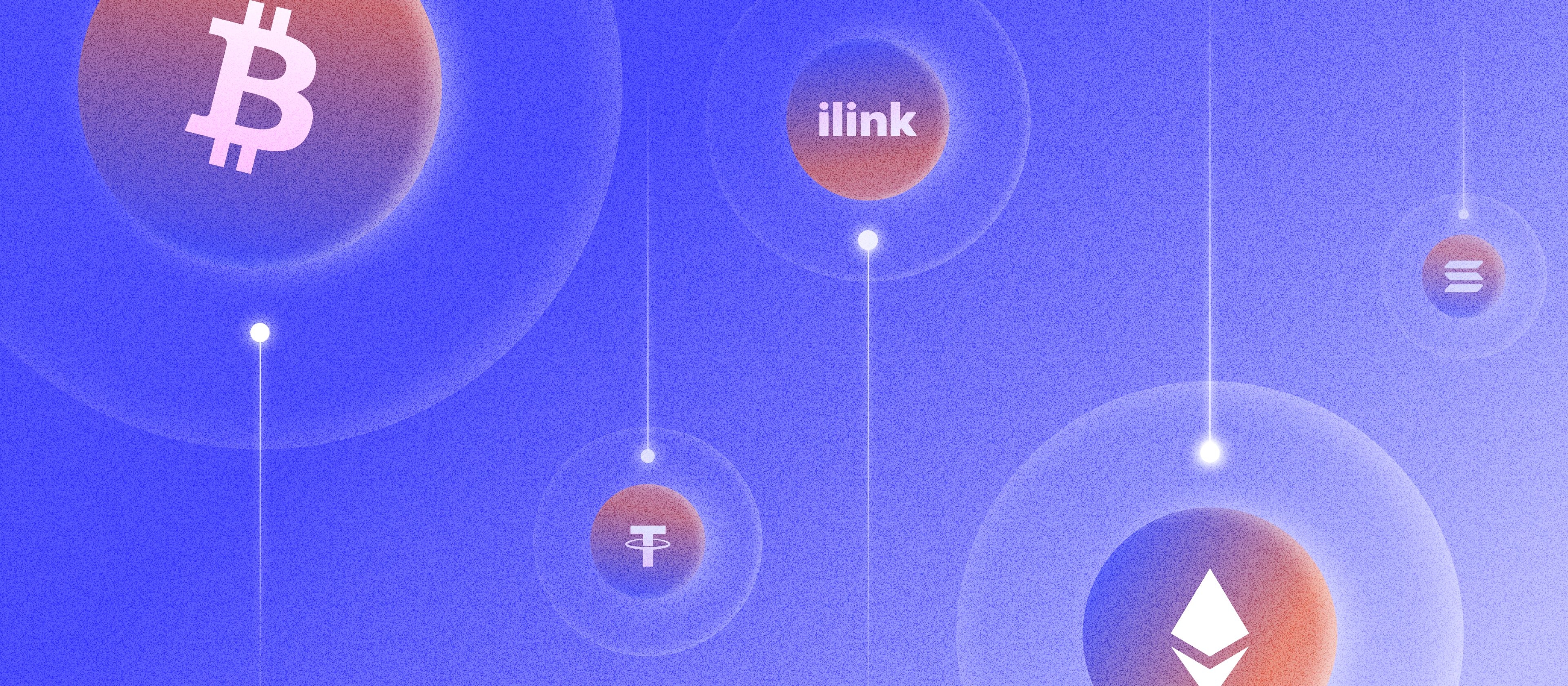What is a DeFi Wallet? Understanding the Key Features and Benefits of Decentralized Finance Wallets

Introduction
The rise of Decentralized Finance (DeFi) has been a game-changer in the cryptocurrency world, offering users the ability to manage their assets without relying on traditional banks or centralized financial systems. At the heart of this revolution is the DeFi wallet, a crucial tool that allows users to interact with the DeFi ecosystem seamlessly and securely.
What is a DeFi Wallet?
A DeFi wallet is a cryptocurrency wallet that is designed specifically to interact with DeFi applications (DApps), allowing users to access decentralized services and protocols. Unlike traditional wallets, DeFi wallets are non-custodial, meaning that users have full control over their private keys and assets without the need for a central authority or intermediary.
Key Features of a DeFi Wallet:
- Non-custodial. You are the sole owner of your private keys and funds, unlike traditional wallets where the custodian has control over your assets.
- Access to DeFi platforms. DeFi wallets are specifically designed to connect with DeFi platforms, enabling you to participate in DeFi lending, staking, yield farming, and decentralized exchanges (DEXs).
- Security. DeFi wallets use advanced encryption techniques to secure your private keys and protect your digital assets from hacking and theft.
- Multi-asset support. Many DeFi wallets support a wide range of cryptocurrencies and tokens across different blockchain networks like Ethereum, Binance Smart Chain, and Polkadot.
How Do DeFi Wallets Work?
DeFi wallets operate by storing private keys that give users control over their cryptocurrencies. These wallets can be either software-based (browser extensions or mobile apps) or hardware-based (physical devices for cold storage).
Interaction with DeFi Platforms:
- Connecting to DApps. DeFi wallets allow users to connect to decentralized applications (DApps) and interact with smart contracts. Whether it’s a DeFi exchange or a yield farming platform, the wallet lets users interact directly with the platform in a secure and decentralized manner.
- Transactions. Users can send, receive, and swap cryptocurrencies by signing transactions with their private keys. Each transaction is validated and recorded on the blockchain, ensuring transparency and immutability.
- Smart contract execution. DeFi wallets enable users to engage with smart contracts, which automatically execute predefined actions without the need for a trusted intermediary. This feature is critical for DeFi lending, staking, and governance processes in the DeFi ecosystem.
Key Features of DeFi Wallets
DeFi wallets offer several key features that make them an ideal solution for managing cryptocurrency assets in a DeFi environment:
- Non-Custodial. DeFi wallets are non-custodial, meaning that users hold the private keys to their wallets. This gives users complete control and ownership of their funds without relying on centralized exchanges or financial institutions.
- Access to DeFi Applications. By using a DeFi wallet, users can connect to popular DeFi applications like Uniswap, Aave, Compound, and MakerDAO. This allows them to participate in a variety of DeFi protocols, such as decentralized exchanges (DEXs), lending platforms, and staking.
- Security. Security is a top priority for DeFi wallets, with features like private key encryption, multi-signature authentication, and hardware wallet support. These wallets are designed to ensure the safety of your funds from potential hacks and vulnerabilities.
- Multi-Asset Support. Many DeFi wallets support a wide variety of tokens across different blockchains. This allows users to manage their assets in a single wallet, whether they are using ERC-20 tokens, BEP-20 tokens, or assets from other blockchain networks.
- Transaction Flexibility. DeFi wallets allow users to perform transactions directly on the blockchain. Whether it’s sending funds to another user, swapping tokens on a DEX, or interacting with DeFi lending protocols, DeFi wallets provide a wide range of options for users.
Contact ilink - we specialize in helping businesses and individuals leverage the power of DeFi wallets to securely manage their digital assets and interact with DeFi platforms. Let’s take your blockchain journey to the next level!
Types of DeFi Wallets
There are different types of DeFi wallets available, catering to a wide range of needs. Here are the main types:
Software DeFi Wallets:
- Browser-based wallets. These are browser extensions like MetaMask and Coinbase Wallet. They allow users to interact with DeFi DApps directly from their web browsers.
- Mobile DeFi wallets. These apps, like Walletverse, Trust Wallet and Exodus, allow users to manage their DeFi assets and interact with DeFi platforms from their smartphones.
Hardware DeFi Wallets:
- Hardware wallets like Ledger Nano X and Trezor offer offline storage for private keys, providing enhanced security for DeFi tokens and cryptocurrency assets. These wallets are ideal for long-term storage and protection against online threats.
Web-Based DeFi Wallets:
- Some wallets, such as Portis and Fortmatic, are web-based and allow users to access their DeFi wallets through a simple web interface without needing browser extensions or mobile apps.
Popular DeFi Wallets
Here are some of the most popular DeFi wallets in use today:
1. Walletverse.
Walletverse is a versatile, multi-currency DeFi wallet that supports over 600 cryptocurrencies, including ERC-20, BEP-20, and other popular tokens. Walletverse offers a user-friendly interface and integrates with DeFi applications for seamless access to decentralized finance services like lending, staking, and swapping tokens. Additionally, Walletverse supports multi-account management, providing users with the flexibility to manage multiple assets in one wallet. With built-in security features such as biometric protection and password protection, Walletverse ensures the safety of user funds while offering a fast and efficient way to interact with DeFi platforms.
2. MetaMask.
One of the most widely used DeFi wallets, MetaMask allows users to interact with Ethereum-based DApps and store ETH and ERC-20 tokens. It is available as both a browser extension and mobile app.
3. Trust Wallet.
Trust Wallet is a mobile wallet that supports a wide range of cryptocurrencies, including Ethereum, BNB, and ERC-20 tokens. It also integrates with DeFi applications and provides staking options for certain tokens.
4. Coinbase Wallet.
Coinbase Wallet is an easy-to-use mobile wallet that allows users to store and manage their crypto assets securely. It also connects to DeFi platforms and allows users to engage in DeFi lending and staking.
5. Ledger Nano X.
Ledger Nano X is a hardware wallet that offers robust security for storing DeFi assets. It supports multiple blockchain networks and allows users to manage and interact with DeFi tokens offline.
Risks and Challenges of Using DeFi Wallets
While DeFi wallets offer numerous advantages, they also come with certain risks:
- Phishing Attacks. Phishing attacks are one of the most common threats to DeFi wallet users. Malicious actors may attempt to steal private keys or funds by creating fake DeFi wallet apps or websites.
- Smart Contract Vulnerabilities. DeFi platforms are built on smart contracts, which, if not properly audited, could contain vulnerabilities. Using a DeFi wallet to interact with insecure DeFi protocols can put your funds at risk.
- Loss of Private Keys. Since DeFi wallets are non-custodial, if you lose your private keys or seed phrase, you lose access to your funds forever. It’s important to back up your private keys securely.
DeFi wallets are essential tools for anyone involved in the DeFi ecosystem, offering a secure, decentralized way to manage cryptocurrencies and interact with DeFi applications. Whether you’re participating in DeFi lending, staking, or simply trading on decentralized exchanges (DEXs), DeFi wallets offer enhanced control, security, and privacy.
By understanding the meaning of DeFi wallets, their key features, and the different types available, you can confidently manage your digital assets and explore the growing world of Decentralized Finance.
Comments (0)
Latest Posts

This article will explain what outstaffing is, how it works, its key benefits, and how businesses can choose the right outstaffing partner to help scale their teams efficiently.

Fintech solutions company Ilink has researched and prepared an article in which we look at these two key players, their key differences, and the future of banking in the digital age.
Do You Have Any Questions?
Leave your details - we will contact you to answer all your questions

